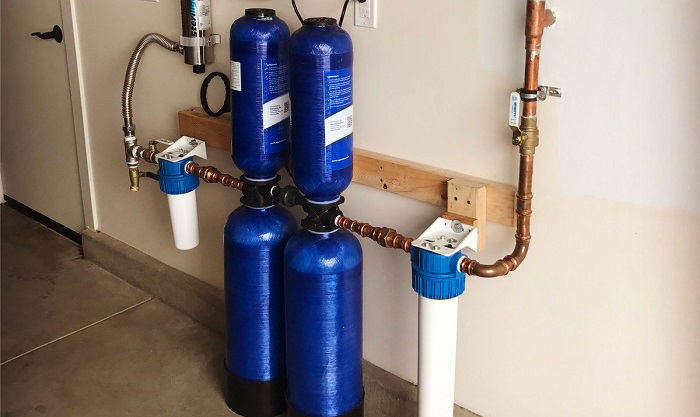Saltless water softeners claim to provide the same results without the size and inconvenience of salt-based systems. These salt-free setups promise no more large salt tank taking on room, forget about investing in salt bags, no more rear pain from hauling them home to fill up the system. Noises great, right? So, how do they really measure?
The simple truth is that salt-free normal water softeners aren’t normal water softeners, don’t provide lots of the same benefits that salt-based systems do, and aren’t accredited to meet industry benchmarks. Here’s a break down of that they compare and just why a salt-based system is a better investment.
Water Softening includes an ion exchange process, which takes out both magnesium (Mg2+) and calcium (Ca2+) from normal water. Through the ion exchange process, a polymer resin foundation attracts hard normal water vitamins and replaces them with sodium ions; it is this removal of magnesium and calcium that defines “water softening”.
It is a common misconception that salt-free drinking water softening systems remove hard drinking water minerals the same manner that their salt-based counterparts do. Some assume that the only difference is the fact that one uses salt, as the other will not. In reality, salt-free normal water softeners USUALLY DO NOT actually soften drinking water at all – they “condition” it.
Third party studies also show that magnetic water treatment devices aren’t adept at providing all the advantages of soft water1. Research also shows that this particular kind of device isn’t compatible with many water conditioners, and frequently does not show steadiness in its results.
Manufacturers’ says that magnetic devices prevent scale formation in warm water heaters is unsupported.
There is absolutely no scientific evidence that magnetic water softeners properly assist in water treatment
A non salt water softener uses potassium instead of sodium. The potassium produces a chemical transformation that crystallizes the nutrient buildup.
This is useful in that it avoids the minerals from clinging to your plumbing related, laundry, and other surfaces that hard normal water can develop scale on.
However, there’s a contradiction in every of the, which is a no-salt normal water softener is in fact not really a “softener” by any means; it’s technically a conditioner or descaler.
In other words, your water continues to be hard after it goes by through the salt-free water softener.
A water softener without salt may seem to be like a affordable compromise on the top. For just one, they don’t add any sodium to your daily diet. Secondly, they look (with heavy focus on “appear”) to really have the same general ramifications of a salt-based water softener. Last but not least, some may find a saltless water softener appealing because of the carefree nature useful; you don’t have to fill up the machine with salt regularly.
In reality, a salt-free normal water softener system is more costly (specifically, the potassium pellets they use) while being less effective. They might need less attention because they don’t are hard.
A great way this holds true lies in the fact that a normal water softener without salt does not reduce scale accumulation in equipment where water rests for very long periods. This will likely necessitate more regular servicing.
On the other hand, a salt-based water softener works hard therefore the systems at home that are ill-equipped to handle vitamins don’t have to.




